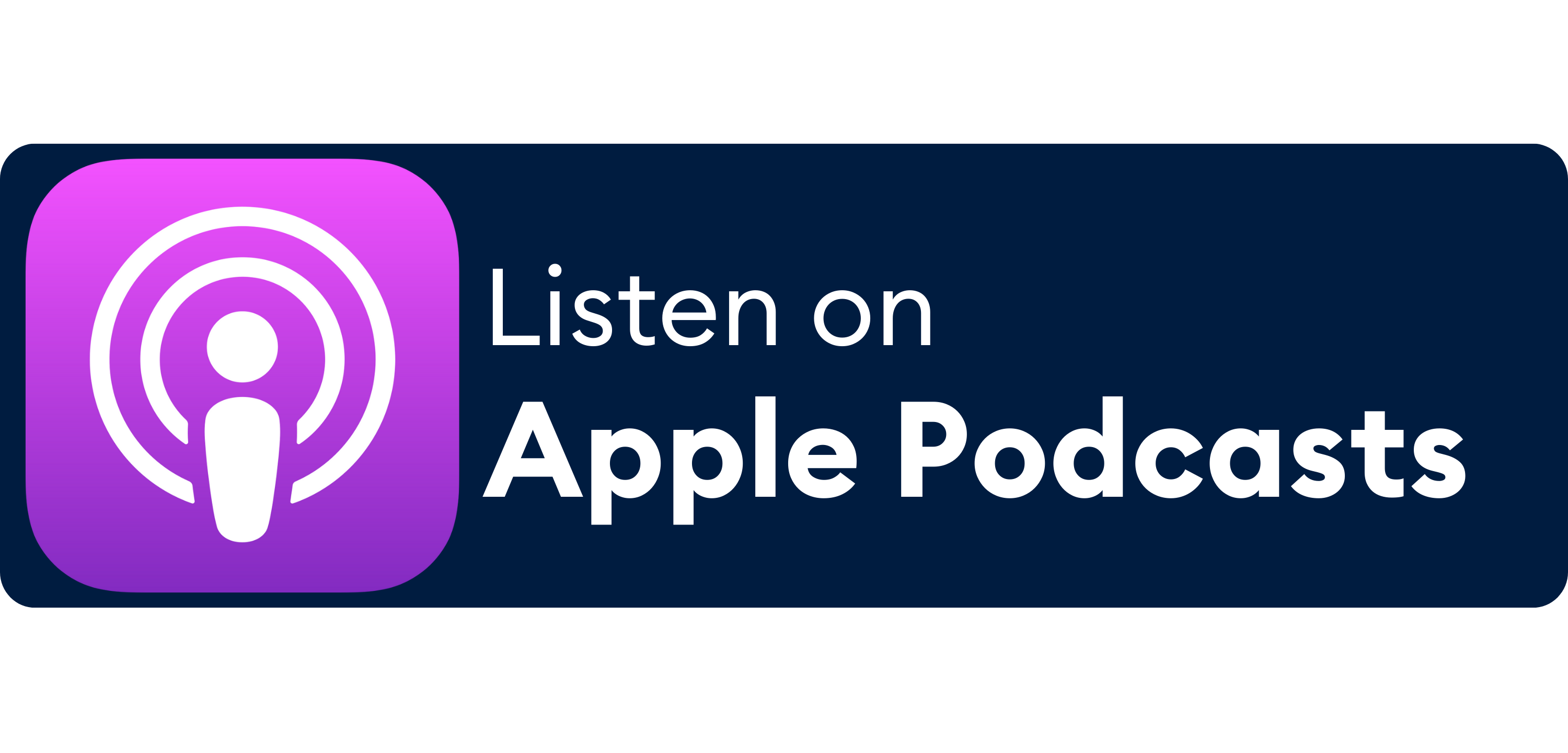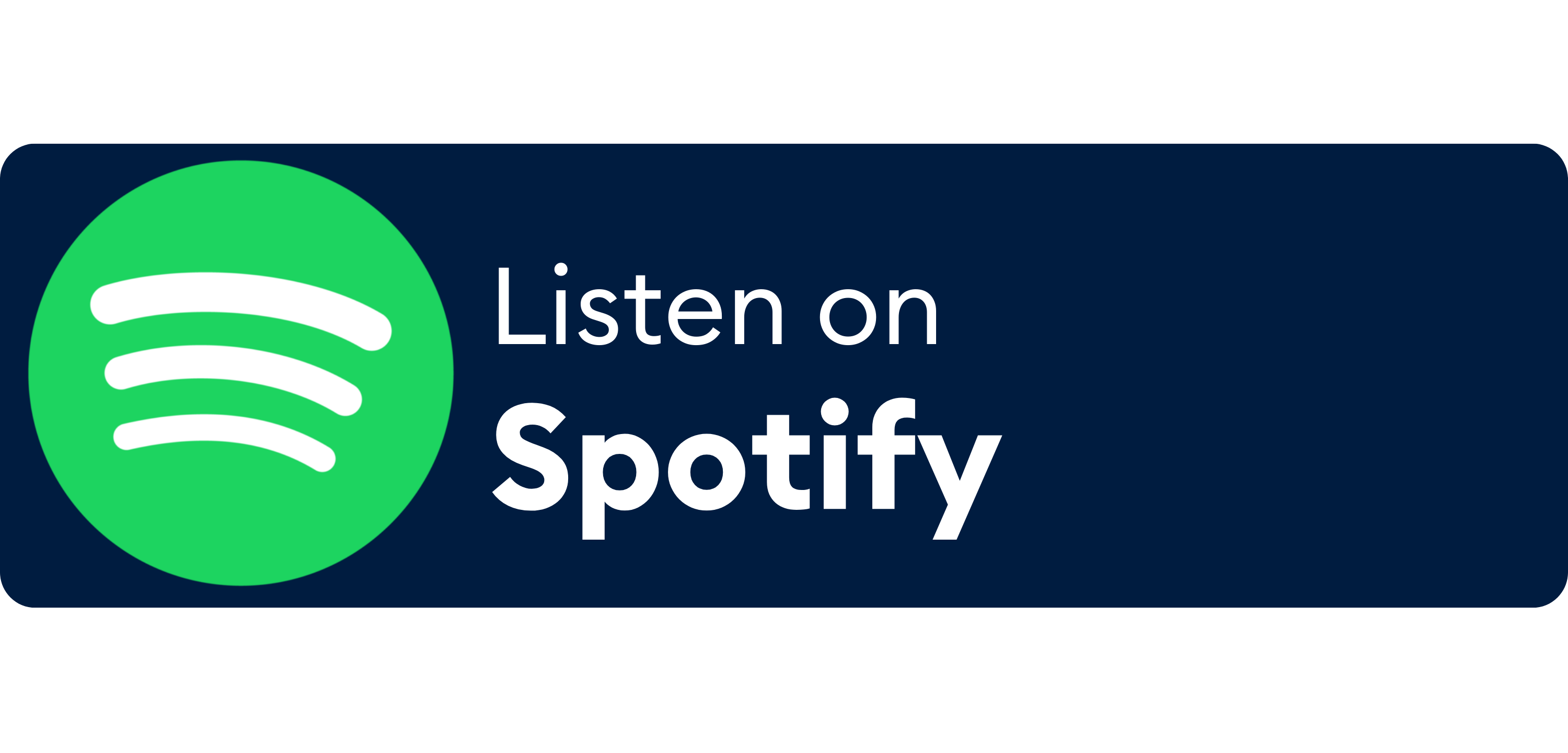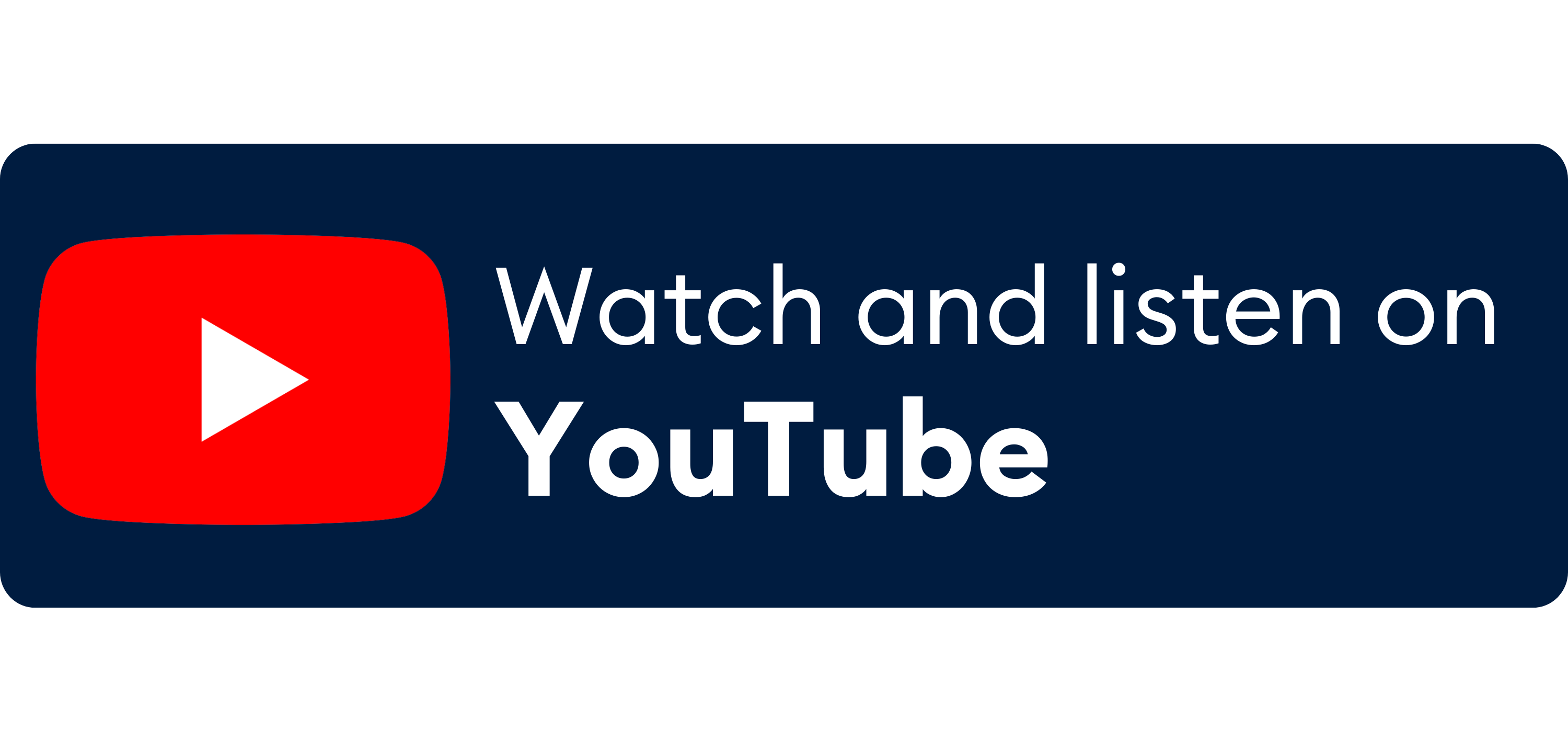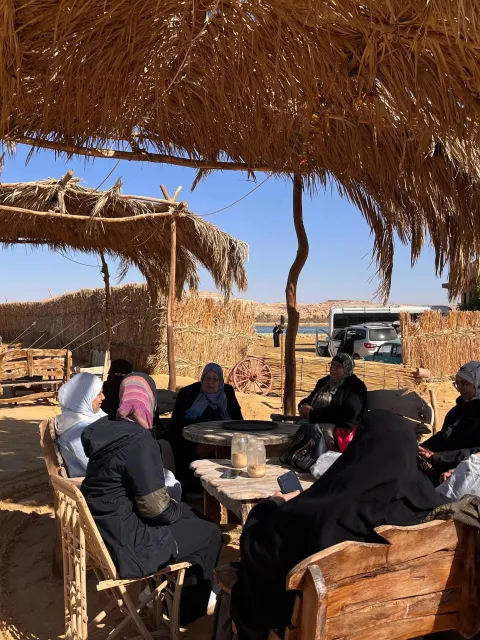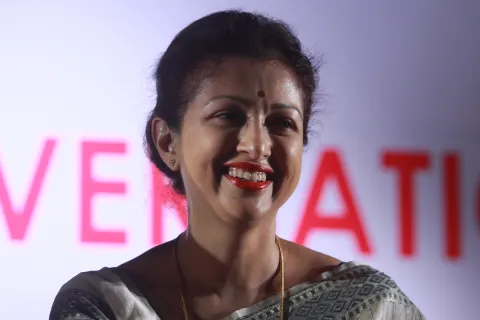
Gautami Tadimalla, Actress and Founder of Life Again Foundation
Gautami Tadimalla, a celebrated Bollywood actress, speaks to Cary Adams in Let's Talk Cancer.
Breast cancer is the most diagnosed cancer in the world. It is accounts for 1 in 4 cancer cases in women and is the leading cause of cancer-related death for women.
This places a considerable burden not only on public health but also on individuals, their families and their communities.
Men can also develop breast cancer, and while very rare they often face lack of support and stigma. UICC has addressed this issue in a previous podcast on breast cancer.
In this edition of "Let's talk cancer" ahead of Patient Solidarity Day on 9 December, Cary Adams, CEO of UICC, speaks with Ms Gautami Tadimalla about what it means to receive a cancer diagnosis, especially as a public figure. Ms Tadimalla is an acclaimed South Indian actress who starred in over 130 films and was diagnosed with breast cancer at the age of 35. She also talks about how that experience continues to affect one’s life even after remission, and how developing and surviving cancer translates into advocating for better cancer care for everyone.
Ms Gautami Tadimalla is also the founder of Life Again Foundation, whose mission is to reduce the social and economic impact of cancer in India and improve the education of Indian youth. .
"[Having breast cancer] was a journey that was all consuming. It eats you up from the inside out: mentally, emotionally, physically. It is unfortunately the most profound experience that one can have in life."
– Gautami Tadimalla, Indian actress, Founder of Life Again Foundation, India
See podcast transcript below
Listen on: Spotify | Stitcher | Apple Podcasts | Amazon Music | Audible | Deezer
Podcast transcript
Cary Adams, CEO, UICC: [00:00:02] Hello, this is Cary Adams CEO of UICC for another Let's talk cancer podcast. Today, breast cancer. Breast cancer is the most diagnosed cancer in the world. It accounts for one in four cancer cases in women and is the leading cause of cancer related death for women. This places a considerable burden not only on public health, but also on individuals, their families and their communities. Men can also develop breast cancer, and while very rare, they often face a lack of support and stigma. UICC has addressed this issue in a previous podcast on breast cancer. Today we'll be talking to Ms. Gautami Tadimalla, an acclaimed South Indian actress who starred in over 130 films and was diagnosed with breast cancer at the age of 35. Ms. Gautami Tadimalla is also the founder of Life Again Foundation, whose mission is to reduce the social and economic impact of cancer in India and improve the education of Indian youth. It's an absolute pleasure to talk to you today, and thank you very much for giving us your time. Just with that introduction, I know that we're going to hear a lot of interesting things from your life and how you have reacted to having breast cancer to make a difference more generally. So thank you very much for your time. We really appreciate this.
Gautami Tadimalla, Indian actress, Founder of Life Again Foundation, India: [00:01:23] First of all, I want to say, Cary, thank you for having me on the podcast. It's an absolute pleasure to be doing this, and it's wonderful to meet you, actually. The UICC has been doing some amazing work and it's been a guiding light for many people to pull their efforts together across the globe.
Cary Adams: [00:01:41] Thank you very much. Let me start off with a question which I think everyone would like to know. How did you learn that you had breast cancer? What was your reaction to that? Where were you?
Gautami Tadimalla: [00:01:52] I would say that probably the primary reason that I'm here today and I'm talking about this is that I went looking for my cancer myself. So I was about 32. My daughter was about three years old. And that's when I started checking myself, doing a self-breast exam and doing the annual bloodwork and the check-up and everything. My carefulness came from being a single parent. The awareness suddenly kicked in that I had to take care of myself to be there for her. So it started with that. And then when I was about 34, 35, that's when I found a lump, went to the doctor, did all the tests. Each one came out positive for malignancy. And then I went through the treatment. It was a journey that was all-consuming. It eats you up from the inside out, mentally, emotionally, physically. And it's a journey that perhaps can never really be adequately described in words by anyone who's gone through it, because there's always going to be some part of it that's felt so deep that it's very hard to put words to it. But yes, I would definitely say it is unfortunately the most profound experience that one can have in life.
Cary Adams: [00:03:07] And how old was your daughter at the time?
Gautami Tadimalla: [00:03:09] She was four going on five.
Cary Adams: [00:03:12] How did you raise the issue with her at that age? Was that a challenge? How did you do that?
Gautami Tadimalla: [00:03:18] My approach to parenting is that I never babied my daughter. Neither did I ever look for her to grow up faster than her age. But I always wanted her to know, to be aware, because I saw through her eyes the intelligence with which children view the world around them, the awareness with which they engage in the world around them. And I think it's a huge pity that we dismiss that. We don't even recognise that and say "Oh, they're just kids." So I spoke to my daughter. I told her, you know, mama has a has a lump over here in the breast and then I'm going to have some tests. I'm probably going to cut my hair off. And then after that, I'm going to have a surgery and this is what's going to happen. And then I'm going to have these injections and then I'm going to be very tired for a while and then I'm going to be okay. So I just explained that each step of the way. And she was just there with me, I made it as matter of fact as possible.
Cary Adams: [00:04:23] You know, I think one of the challenges I've heard from many people diagnosed with cancer is that conversation with their children. So it can be very difficult and challenging. So the experience you went through after that, in terms of your treatment, what was it like?
Gautami Tadimalla: [00:04:36] I did have an excellent team of doctors. I should also say here that I went looking for answers and I kept asking them questions. I did not Google. I did not look for other people's experiences and opinions, but I went to the doctors that I had chosen to trust with my treatment, and I asked them all the questions that I had. Now, I must say that I know I'm aware that I do have another advantage is that I come from a family of doctors. My father was one of the earliest radiation oncologists in India. So he set up probably one of the earliest cobalt treatment systems in India in the early sixties, if I'm not mistaken. And my mother was a pathologist, and we always had a very practical, common sense approach to health and illness and disease. So when I went looking for my cancer myself, I believe that that's where half of my battle was already won.
Cary Adams: [00:05:36] That's terrific that you had a family involved in in cancer. And it may well have, as you say, affected your thoughts about the challenge of cancer or really maybe through your own upbringing when they were talking to you about their work and what they did. In many countries around the world, many cultures actually, which spread across multiple countries, there's a stigma associated with cancer. Breast cancer in some cultures is something which many women feel they have to hide away and keep secret for the various reasons. Did you face any stigma at all or any reactions which were surprising for you?
Gautami Tadimalla: [00:06:08] I still remember the first time I was at home and someone came to the house for some work and I went out to meet them. I am a person who has been in the public eye for most of my life, so I've grown up in front of probably three generations of Indians, especially South Indians. And I have been blessed to receive a lot of love from people. But when I went out and I saw these people, they came forward with a smile and their face changed. They went blank. They were looking very disturbed. And then they actually looked angry. So it troubled me for a while and I said "why that anger?" And then I realised seeing me the way that they saw me with no eyebrows and no hair and all of that, I think somebody that they had seen on screen - vivacious and full of life, glamorous and doing all of that, creating so much energy on screen - suddenly they see me as the epitome of cancer, which equals death. I think that shook their sense of their own confidence in life. And then I realised that this is probably at the root of a lot of the stigma that people affected with cancer face. It makes people very uncomfortable because it makes them question their own mortality.
Cary Adams: [00:07:36] Do you think that was more exaggerated because of the fact that you were so well known? And of course, having done so many films and presumably your beauty is being captured since you were very young and therefore it was more of a stark visualisation of you.
Gautami Tadimalla: [00:07:54] I do think that was a factor. But for the anger to come in, that is something that would come in only when they were intensely unhappy about something that they were seeing. They could have felt sympathy, they could have felt pity, they could have felt discomfort. But the anger comes when something within you has been jolted. Once my treatment was over, I started talking to journalists and taking opportunities for interviews. And then they would come in and they would ask a very famous question: "you had a problem, so are you out of the problem?" And it took me a while in the beginning to figure out what this "problem" was and you could see the air quotes when they said it. And I said, "no, it's not a problem. It's cancer. Say the word." And I would force them to say the word and they would almost strangle themselves in the early days to try and get the word out because I was forcing them. So starting with that sort of thing, when I started speaking about my experiences and how I found my cancer and everything, I went through it step by step, the emotional impact of it, the treatment, everything. People were primarily flabbergasted. They couldn't understand that I was actually speaking about it. And then I realised there's so much fear, there's so much shame, there's so much confusion, distrust. There's a whole lot of things bundled into this world called cancer.
Cary Adams: [00:09:21] The word is a very powerful word. I haven't had cancer and hopefully I won't get cancer. But I recall when I first started this role some 13 years ago that I met some ex-colleagues a number of times. I used to work in the banking industry, and so I'd get invited to events and things still, and I'd go along and they'd say, "Oh, Cary, how are you?" And we'd start the conversation and say, "What are you doing now?" And I'd say, "I run a cancer organisation." And actually, that would stop the conversation because they wouldn't know how to deal with the subject matter of cancer. So I've seen that in a very soft way. And I'm sure many people experience that when they talk about their cancer. So I can understand it to some extent. It is a challenge. Of course, when you were diagnosed, you were 35 and most 35 year olds aren't even thinking about death. I mean, it's not on their agenda. It's something that happens to parents and grandparents. So it can be a real challenge for a young woman to suddenly have the shock of, "Oh my God, I might die from this."
Gautami Tadimalla: [00:10:25] It is hugely difficult. I mean, it's almost impossible to put into words the feelings that rushes through you and pervades every cell in your brain. But you have to deal with it a step at a time because life continues and that life is worth fighting for.
Cary Adams: [00:10:47] What advice would you give to women who find themselves in the same situation as you? What did you learn through the process?
Gautami Tadimalla: [00:10:53] First of all, to understand their cancer. First of all, to know what is happening within their body. Try first. Understand that. Open your mind. And nine times out of ten understand that you probably did nothing to deserve this. There should not be a sense of being a victim. I've encouraged them to go to doctors that they feel comfortable with, people that they can ask questions. I say, "are your doctors telling you all of these things? Are they ready to take a minute extra? Because I know everyone's pressed for time, but are they okay with taking a minute extra to answer a question or to see that you're in pain or you're confused or something and then take that second to ask, Are you okay?" And I know we're probably going to come to this, but I want to jump the gun a little bit. One of the biggest crises that's happening here is lack of support for most women. For a huge number, I won't even say most, but a huge number of women lack support, as in the ability and the freedom to make their own choices, their own decisions about their diagnosis and their care, about interacting with their doctors, their medical caregivers. So that is something that I have been seeing and hearing off that is far more widespread. And, you know, they would go in for, say, a consultation with their doctor, their family hospital or, you know, somebody else is there and the doctor gives them the diagnosis and they just told, "yeah, it's okay, she'll have the surgery. And then after that you can do that and you can do this. And yeah, she's okay with that." And they just make the decisions at walk out. So there are things like this that are very troubling still that need to be spoken about a lot.
Cary Adams: [00:12:42] I mentioned earlier that you are the founder of the Life Again Foundation, so you've obviously taken the experience of cancer and converted it into an absolute positive. How does that go? How does it work? And what sort of things do you do through the foundation?
Gautami Tadimalla: [00:12:55] Life Again Foundation was formed because you realise that you get past cancer. To be honest, it took me a very long time before I could trust in tomorrow, where I could make plans for next week where I could anticipate next week and next month. And again, to be honest, it took me at least a few years before I could make plans for the next year. So you tend to very much live in the moment because your sense of that tomorrow and the certainty with which you would look at your future is shaken. But once I did figure that out, then you realise that life goes on. But then the way it goes on has to be reinvented because you cannot be the same person. You must not be the same person. And so that's how Life Again Foundation began. And it started with going around and talking to as many people and as many groups of people that I could find with all kinds of socioeconomic backgrounds, all levels of literacy, all levels of urbanised and rural backgrounds everywhere. I just lived in my car. I've been living in my car for the last five years and just driving through all the states. And it's been really amazing.
Cary Adams: [00:14:19] I'm really interested in what you've seen as differences between rural populations and city populations. This is something which has come up a lot in the past with UICC members that there tends to be a disconnect between the rural community and access to treatment and care, or even their understanding of risk factors or their fear, as we described earlier, of having cancer. What's been your experience talking to people in a rural environment compared to the city environments?
Gautami Tadimalla: [00:14:53] Surprisingly, in terms of awareness and in terms of being open minded enough to accept the reality of cancer and its implications, there's really not that much of a difference between the rural-urban divide. The divide that I have seen and understood comes in terms of facilities available for treatment. So somebody in a village gets diagnosed, they go to a hospital in a town or a city nearby or come all the way to Chennai. And then they have the initial consultation. They have the initial treatment that could probably be first level of intervention is most of the time surgery. And they have that. They go back and they have to come back for consecutive chemotherapy or radiation or whatever the next treatment is, and that's where it starts falling through the gaps. The practical aspects of them being able to travel regularly at that distance because it completely upends their life, their home, their work, a lot of them work on a day to day basis. So if they're away from work or the breadwinner in their family takes off work to bring them to this treatment, then they lose that money and they have other mouths to feed. So that is probably the biggest crisis we have right now in reaching equitable care to every section of society. And that is one of the things that is probably my primary focus now with Life Again going forward. So it's these continuing treatments that have to be made accessible and most importantly, affordable. And that's where our national health insurance scheme comes into play, because for the first time we have a government insurance that does cover all cancer. And yes, definitely there is a good way to go to even take that further. But I also do know that is happening.
Cary Adams: [00:16:50] It's always great to hear that the government is actually taking it seriously and providing the funding as well as the infrastructure and committing to help people with cancer now and in the future. So that's great news. There are obviously challenges still everywhere with regard to the early detection of cancer, getting into the primary health care quickly, getting referred treatment and care survivorship, all those are things that need to be done. And we certainly through our World Cancer Day campaign, highlight what you highlighted there, that there are differences between rural environments and city environments, between social economic groups, and we need to make sure those gaps are all addressed over time, everywhere. Gautami, I've got to say, that was an absolute delight talking to you and you have inspired so many people.
Gautami Tadimalla: [00:17:35] Thank you, Cary.
Cary Adams: [00:17:38] If you've enjoyed listening to Let's Talk Cancer. Please join me in the future as we meet other people with inspirational stories talking about facets of cancer control, which I hope you will find interesting.
Listen on: Spotify | Stitcher | Apple Podcasts | Amazon Music | Audible | Deezer
Last update
Friday 08 September 2023